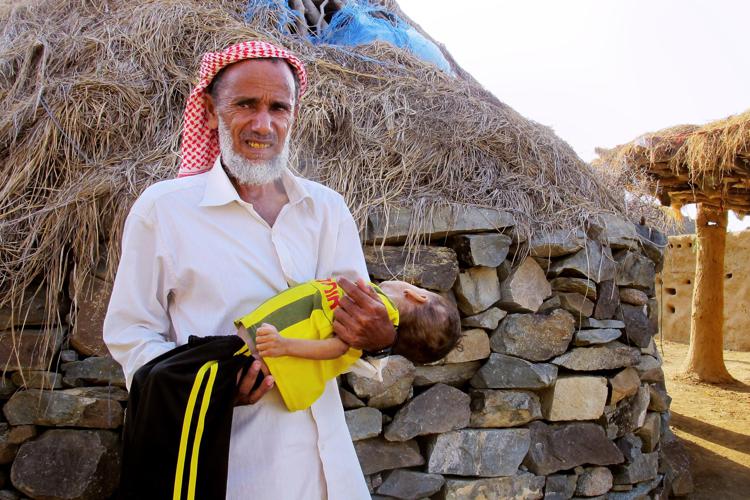

Amid the rapidly deteriorating humanitarian crisis in Yemen, where the spectre of mass famine is looming, the United Nations has intensified its efforts to ensure that tens of thousands of displaced Yemenis have immediate access to cash support, Andrej Mahecic, spokesman for the UN refugee agency UNHCR told reporters in Geneva on Friday.
"In a country where three out of four Yemenis require some form of aid and protection and where food and fuel prices have increased by 25 and 45 per cent respectively this year alone, this assistance is a life-line for the most vulnerable families, helping them to meet their urgent needs while in displacement," Mahecic said.
Current pre-famine conditions and cholera outbreak in Yemen come on top of the disastrous impact the conflict has had so far - massive displacement and mounting civilian casualties, Mahecic warned.
"Therefore, it remains vital that the critical life-saving activities - including protection and emergency shelter - are addressed and supported in parallel with food, health and education programmes."
More than two thirds of an estimated 2.7 million people who fled the conflict to safer areas of Yemen have been living as refugees for more than two years and have depleted all their resources, while many host communities are also "struggling to survive" according to UNHCR.
Other Yemenis who returned to their homes have often found them damaged or destroyed, UNHCR reported.
UNHCR said it is providing cash assistance to the most vulnerable families to help meet their immediate needs including life-saving medical treatments or subsidies that help families avoid evictions and secure a roof over their heads, aid it hopes will strengthen their resilience.
UNHCR has so far this month made cash payments to more than 22,000 vulnerable families (approximately 150,000 people) across 14 of the worst-hit governorates hosting refugees, said the agency.
The funds are released after an in-depth household assessments by UNHCR’s partners operating across the country, often in hard to reach areas. UNHCR is working with Al-Amal bank to distribute cash directly through a so-called Hawala or informal system which is operational and reliable despite the conflict in Yemen, according to the agency.
After assessment, an SMS message notifies families about their entitlements. They can then collect their assistance from any of the bank’s agents across the country. This allows UNHCR to provide assistance to families in hard to reach and remote areas, the agency underlined.
Cash assistance is the most cost-efficient way to offer a flexible and dignified form of support, UNHCR stressed, noting that those benefiting say it helps them to avoid resorting to desperate coping mechanisms, such as child labour and forced marriages.
UNHCR said it and its partners also provide protection services such as psychosocial counselling and legal assistance, as well as distribution of basic aid items for vulnerable IDPs.
"So far this year, UNHCR has distributed almost 33 million dollars cash assistance. We aim to distribute a total of more than 41 million dollars before the end of the year," Mahecic stated.
"In total, 700,000 internally displaced returnees and conflict-affected host communities and another 130,000 refugees and asylum seekers across Yemen will benefit from this assistance in 2018," Mahecic added.
At least 10,000 civilians have been killed and millions displaced in Yemen's three-year-long civil war, which began in 2015 after Shia Houthi rebels backed by Iran seized much of the country, including the capital, Sanaa. Saudi Arabia and allies including the United Arab Emirates joined the war in 2015.
The country is in “clear and present danger” of mass deaths from starvation, and as many as 14 million people – half the population – could soon be entirely dependent on aid to survive, the UN's under-secretary general for humanitarian affairs, Mark Lowcock told the Security Council this week this week.